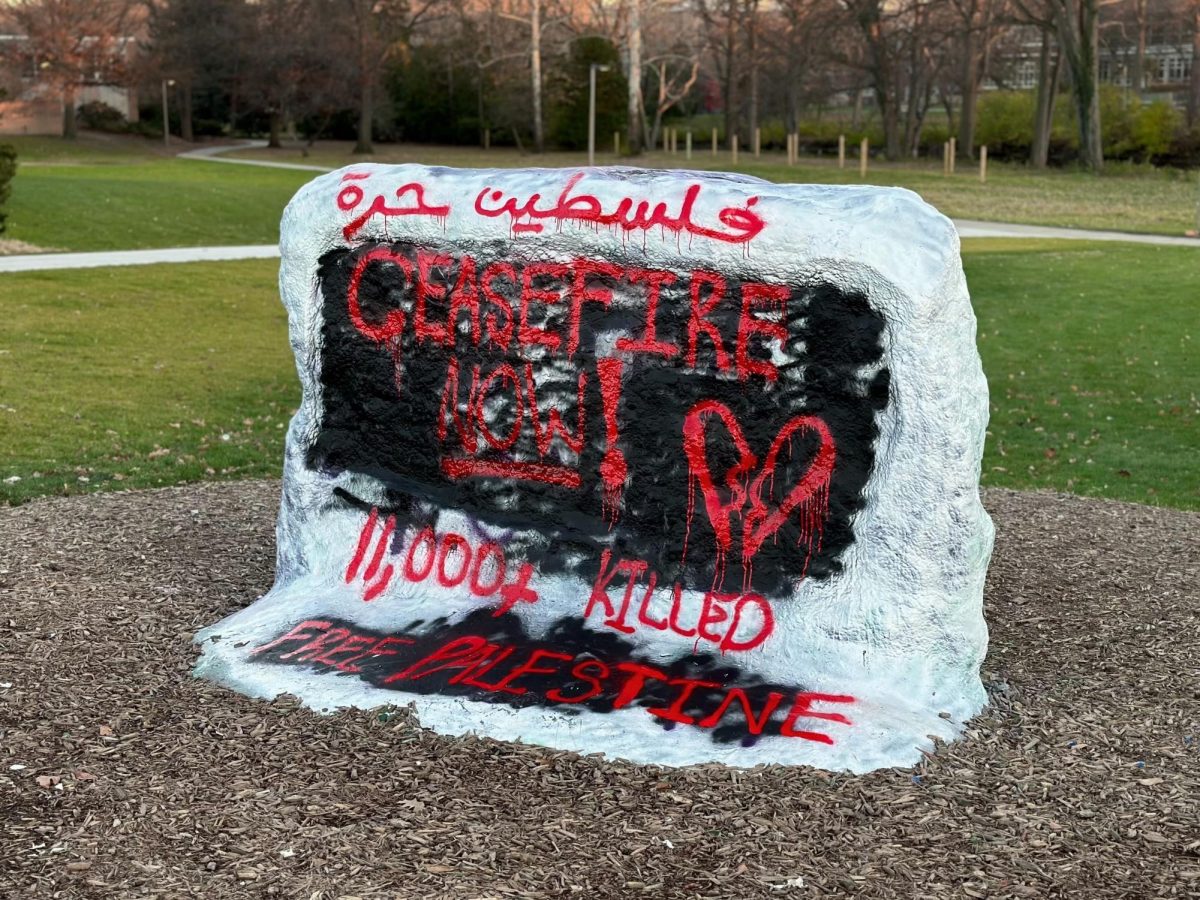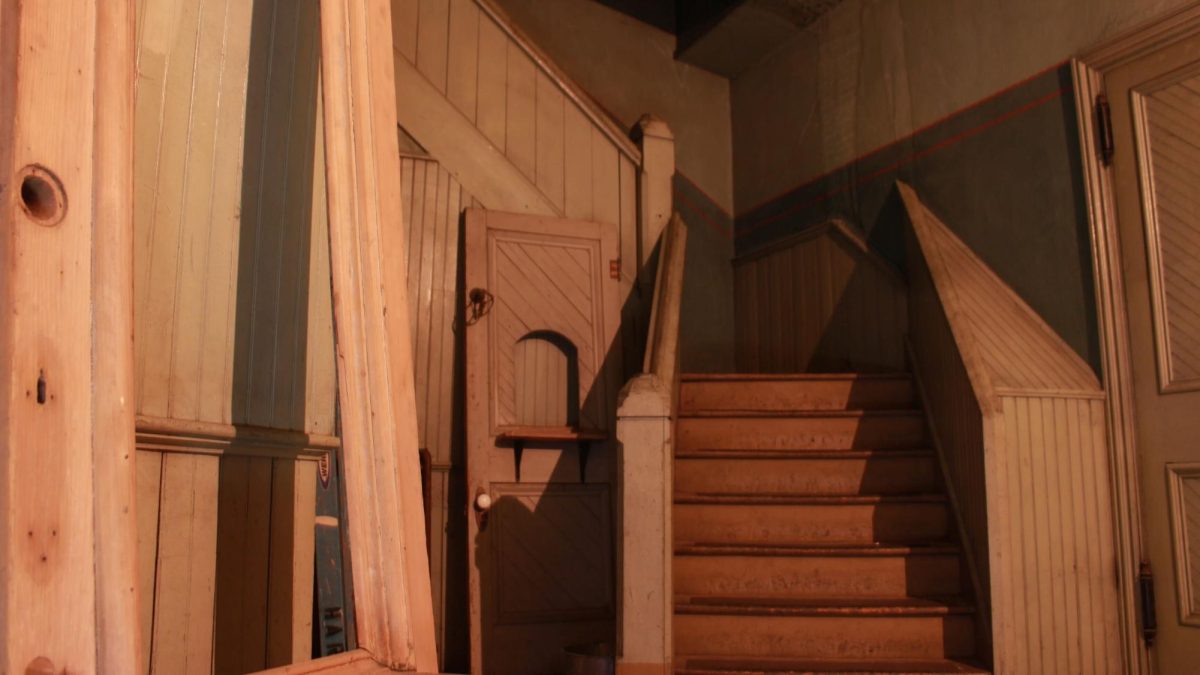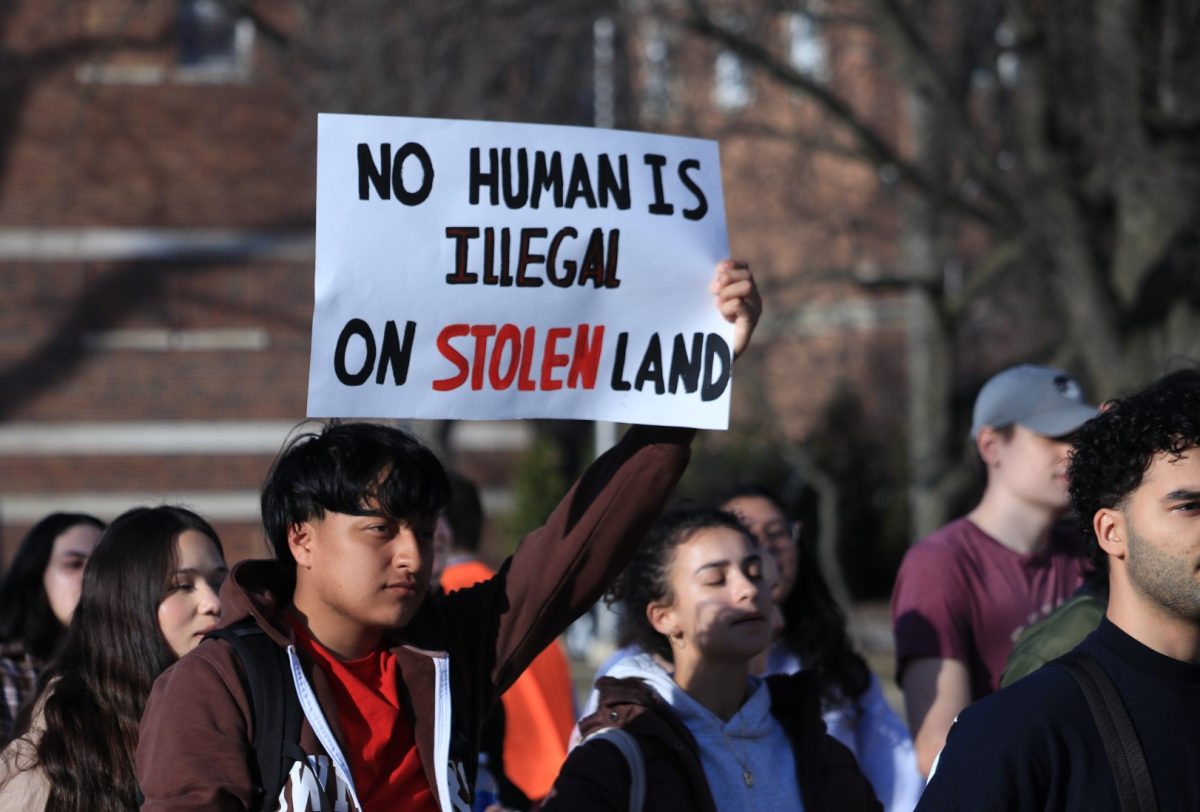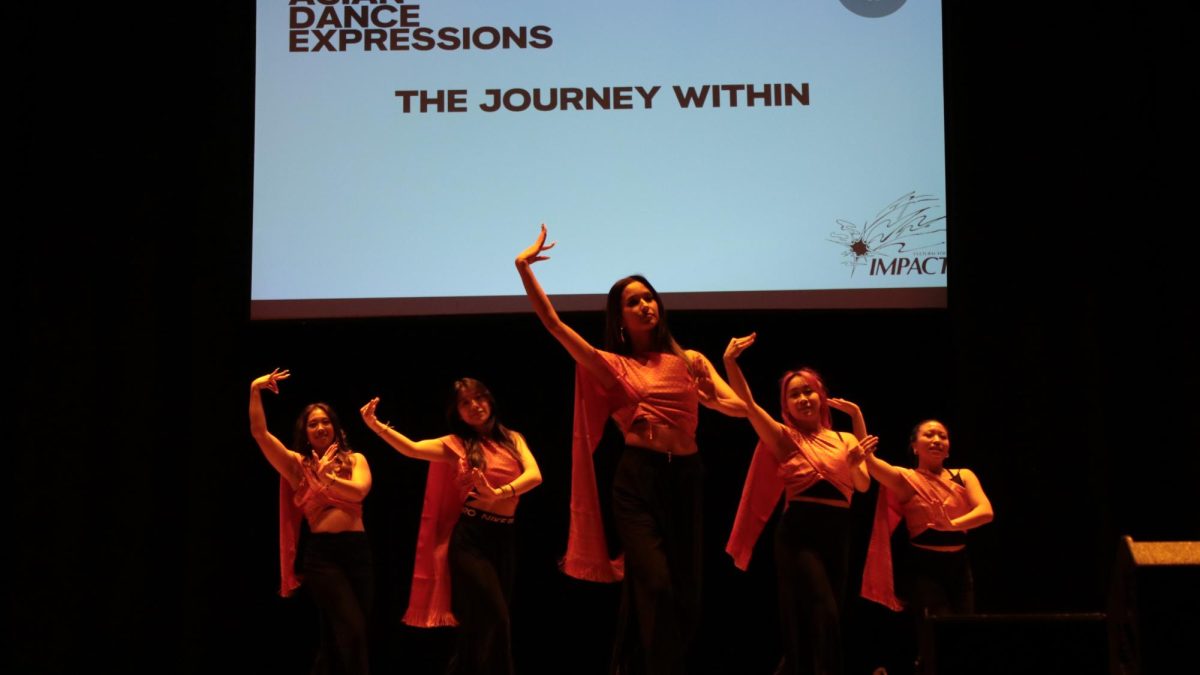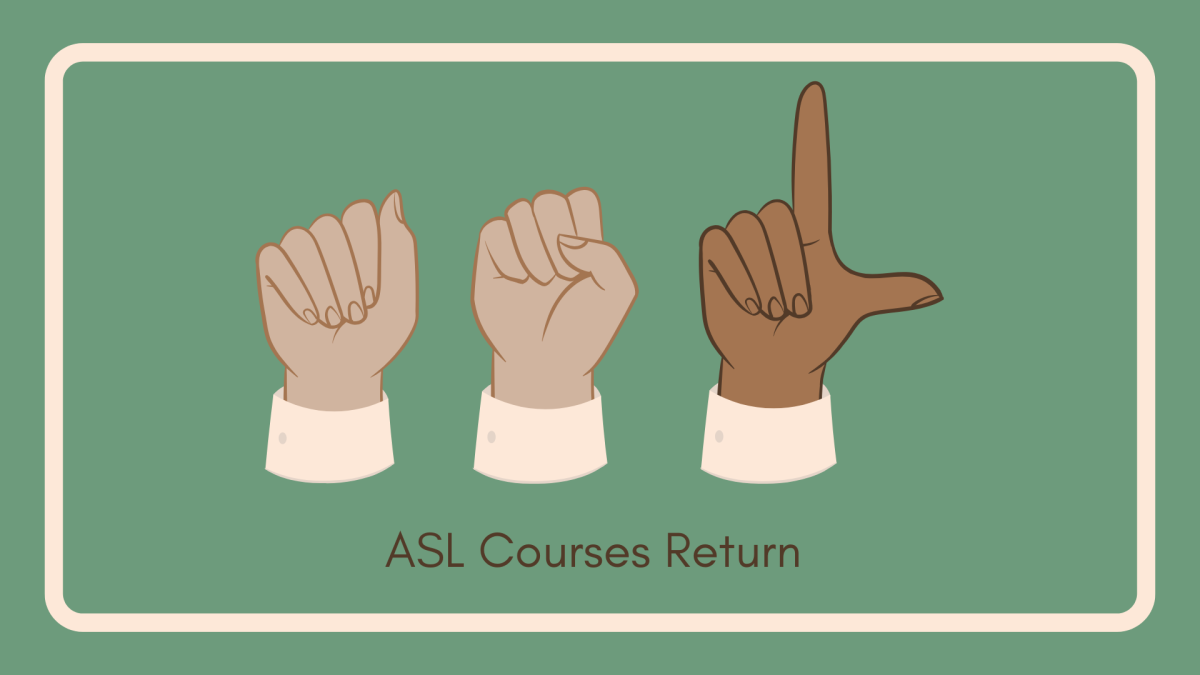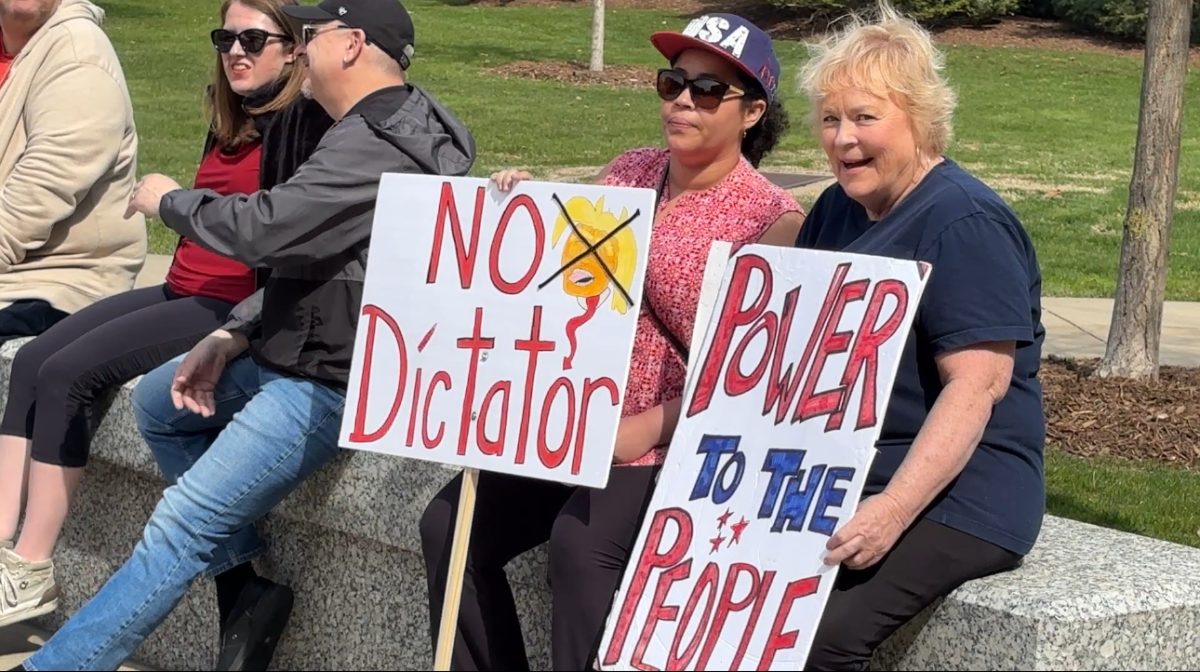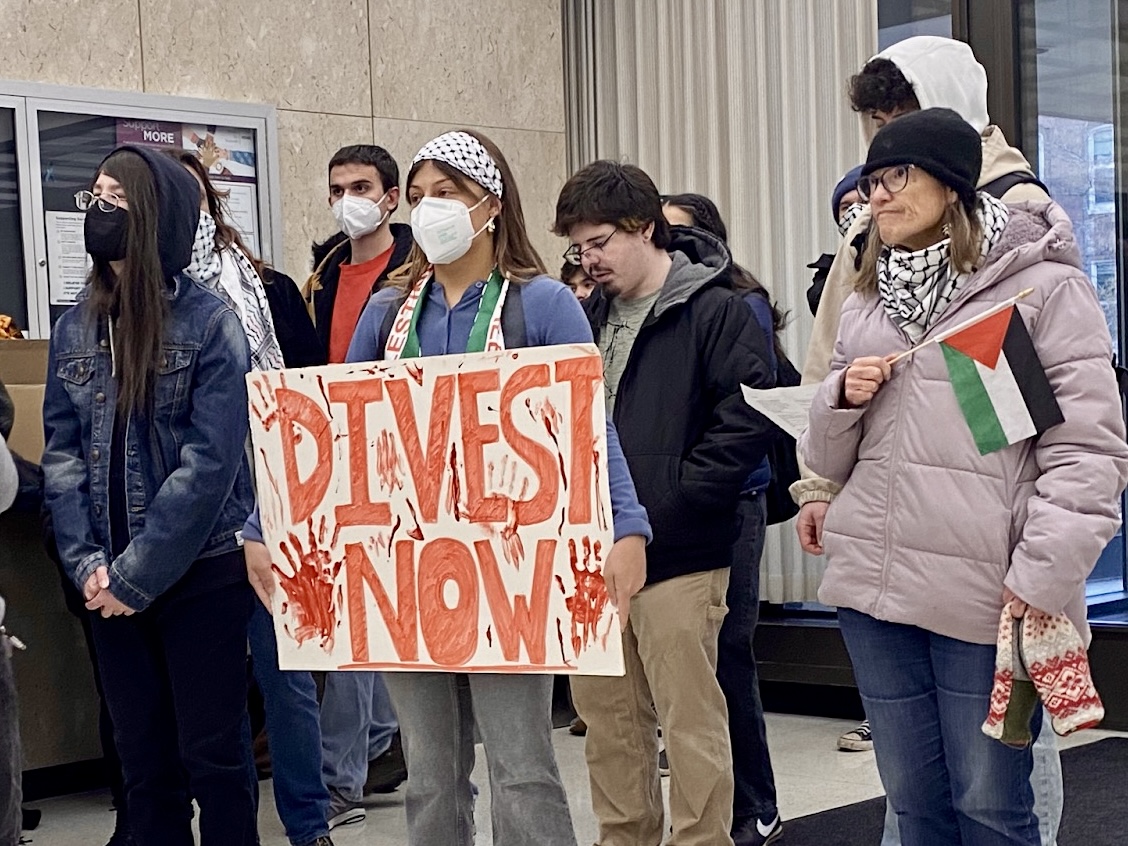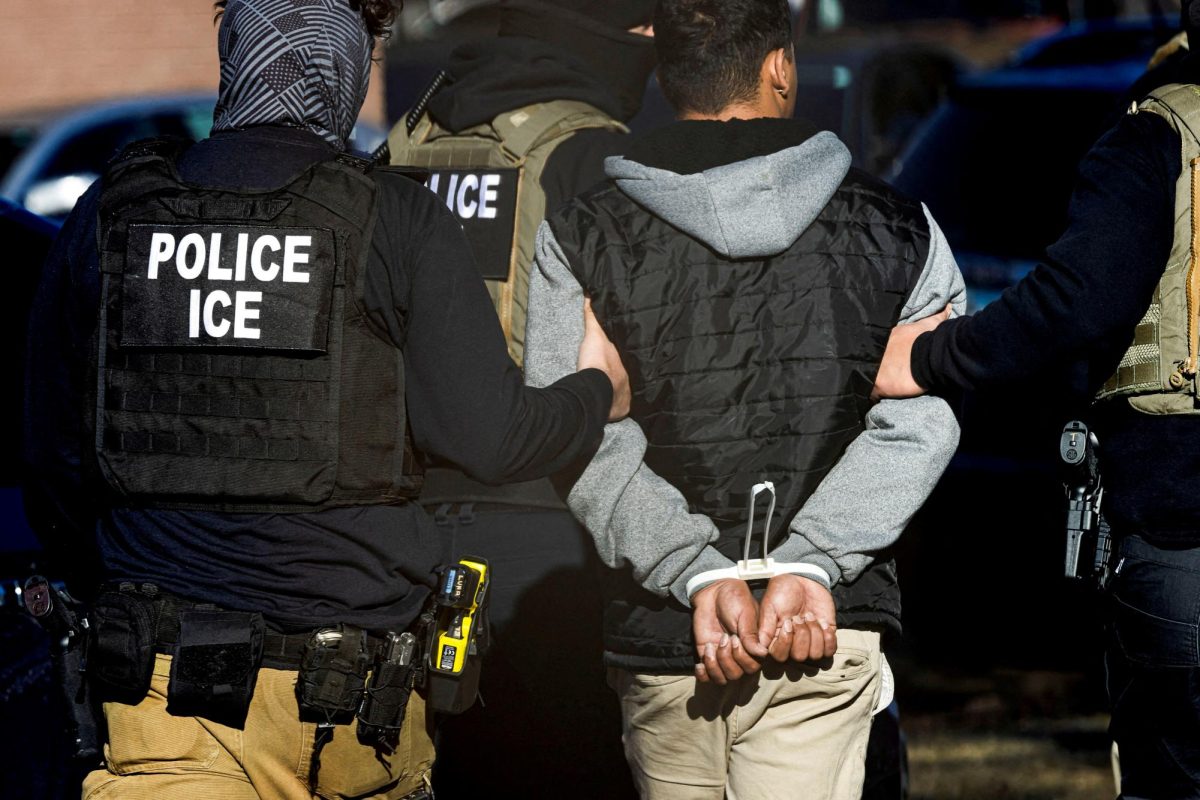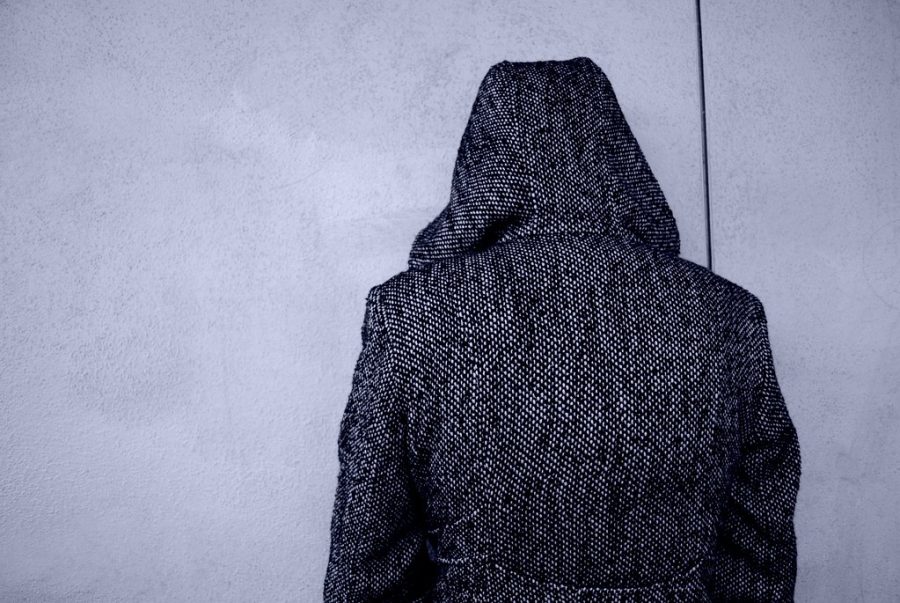Content warnings for mentions of genocide, death, forceful displacement, apartheid and war crimes.
Throughout October, I’ve noticed an increase in centrist viewpoints regarding the Israel-Palestine conflict.
When discussing the oppression and disenfranchisement of Palestinians, you’re expected to mention Hamas. You’re expected to view the conflict as an equal-sided war against two military powers instead of a genocide. You’re expected to throw your hands in the air in concession because everyone sucks, and decisions are hard.
That’s what centrism and neutrality offer to the well-meaning American: a lack of decision. While the easy conclusion of the Israel-Palestine crisis is that Hamas and the Israeli government are equally as bad, what does this conclusion do? What does it say?
It encourages Americans to be apathetic.
Ideally, we could have our cake and eat it too: we could recognize the crimes committed against innocent civilians on both sides and politely ask them to make a compromise. But in reality, the equation of Palestine and Hamas, and Israel and its government, leads to support for no one. The destruction rages on because no one wants to be on the side of the bad guys.
Further, claiming “both sides,” on the issue diminishes the severity of the Israeli government’s war crimes.
As of Nov. 5, 1,400 people in Israel have been killed, 5,400 Israelis have been injured and 250,000 are displaced. In this context, the war began on Oct. 7 with the Hamas attack in southern Israel and the government has been acting in reaction to this event. However, looking at these same statistics through the lens of Palestinians reveals a different story.
Since Oct. 7, at least 4,237 Palestinian children in Gaza have been killed by Israeli forces. Over the course of 10 days, over one million Palestinians have been displaced. Gaza is approaching its 10th year of blockade, which has prevented the transport of materials integral to the construction of water infrastructure in Gaza.
In March, Amnesty International released a detailed report providing evidence of apartheid in Israel’s political system. Palestinians have been targets of segregation, unlawful killings, seizure of property, restrictions on freedom of movement, forced relocation and massacres since the Arab-Israeli War of 1948. The Israeli army utilizes white phosphorus in artillery shells. These are all crimes that go unrecognized or diminished in the context of centrism.
The Hamas attack was not sudden and unexplainable, and the Israeli government is not acting in self-defense.
Centrism is most appealing to the well-meaning empaths who seek moral high ground. They say, “I don’t blindly pick a side like you all. I think we need to focus on humanitarian aid for everyone,”—which has been continuously blocked by the Israeli government from reaching Gaza. It feels good to stay in the middle because you don’t make enemies, but you also refuse to be an ally.
Desmond Tutu once said, “If you are neutral in situations of injustice, you have chosen the side of the oppressor.”
This weaponized neutrality is especially pervasive in U.S. politics. Last Tuesday, the House voted to censure Congress’ only Palestinian American, Rep. Rashida Tlaib (D-MI) over pro-Palestine comments made publicly and on social media. On top of this, she urged President Joe Biden to call for a ceasefire.
Her refusal to be silent rocked the House, leading to a 234-188 vote on the censure resolution. Predictably, most Republicans were in support, but 22 Democrats also voted in favor.
Many democratic representatives are vocal about their opposition to Tlaib’s messages, such as Rep. Elissa Slotkin (D-MI) who publicly condemned her, yet voted against her censure. Democrats can’t decide whether or not to agree or disagree with Tlaib out of concern for maintaining the support of voters.
The censure and deepening rift in the Democratic Party is depicted as a challenge to overcome next election season. Supporting Palestine is nothing more than a tactic to resonate with voters in Michigan, seeing as Arab speakers in the swing state make up 14% of the nation’s Arab population. It also bolsters a lively Jewish community, which spells disaster for a president hoping to win a state he only narrowly secured last election.
We’re in an age that trivializes the suffering of marginalized groups and politicians’ only issues are getting re-elected. Representatives seek to stick to a status quo and appeal to all voters by doing something for everyone, which ends up being nothing at all. Everyone gets the same amount of support, which is none.
You’d think that centrists in America such as Biden would want a ceasefire, the most bipartisan option—but that’s not true. He is actively blocking ceasefire efforts, citing the need to eradicate Hamas first. It’s a thin veil for Biden’s refusal to admit he might be wrong about Israel.
Being good is proactive. You aren’t automatically a good person because you choose not to be an evil one, you become a good person by taking positive action. To be proactive, you must make decisions such as deciding to stand with Palestinian civilians who are battling against genocide.
I encourage you to reach out to your senators and implore them to call for a ceasefire, sign petitions, protest and stay informed. Remember that apathy is the oppressor’s greatest weapon.



